Executive Branch Non-Fiction
Explore top non-fiction books on the Executive Branch, featuring in-depth analyses, historical accounts, and expert insights into government leadership and power dynamics.
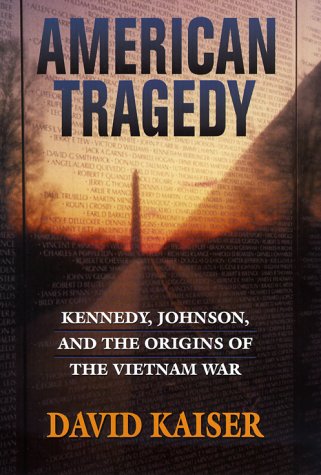
Book
American Tragedy
by David E. Kaiser
Using an enormous range of source materials from these administrations, Kaiser shows how the policies that led to the war were developed during Eisenhower's tenure and nearly implemented in the closing days of his administration in response to a crisis in Laos; how Kennedy immediately reversed course on Laos and refused for three years to follow recommendations for military action in Southeast Asia; and how Eisenhower's policies reemerged in the military intervention mounted by the Johnson administration. As he places these findings in the context of the Cold War and broader American objectives, Kaiser offers the best analysis to date of the actual beginnings of the war in Vietnam, the impact of the American advisory mission from 1962 through 1965, and the initial strategy of General Westmoreland.

Book
An American Life
by Ronald Reagan
In this remarkable autobiography, Ronald Reagan presents a definitive personal account of his historic presidency. With uncompromising candor, modesty, and wit, he tells the story of his life -- public and private -- and reveals the events that shaped his reluctant candidacy and the decision-making process that led to his first nomination; the unseen dangers of Gorbachev's first visit to America; startling facts about top-secret meetings involving heads of state; his frustrations with Congress; and his relationships with the members of his Cabinet. Here are the behind-the-scenes details of the great themes and dramatic crises marking Reagan's eight years in office, from Lebanon to Grenada, from the struggle to achieve arms control to tax reform, and his unprecedented personal diplomacy with major foreign leaders. His narrative is full of new insights and often surprising revelations regarding his innermost feelings about life in the White House, the assassination attempt, his family -- and the enduring love between him and his wife Nancy. An American Lifeis an inspiring American success story, a brilliant self-portrait, and a compelling and significant work of history.

Book
James Madison and the Creation of the American Republic
by Jack N. Rakove
Maths Quest Maths B Year 12 for Queensland Second Edition is a new edition of this highly successful student text designed to meet the requirements of the revision of the Maths C syllabus for implementation from 2009. Maths Quest for Queensland Years 11 and 12 are fully supported by Teacher Editions, eBookPLUS, eGuidePLUS and Solutions Manuals. Maths Quest Maths B Year 12 for Queensland 2E eGuidePLUS for teachers gives instant access to online versions of both student and teacher texts and supporting multimedia resources, making teacher planning and preparation easier! These flexible and engaging resources are available online at the jacarandaPLUS website (www.jacplus.com.au) Your eGuidePLUS resources include: • the entire textbook in electronic format • SkillSHEETs, WorkSHEETs and chapter tests designed for easy customisation and editing • interactive activities and a wealth of ICT resources • electronic tutorials for key worked examples • fully worked solutions to the exam practice sections • a work program Click to view Maths Quest Maths B Year 12 for Queensland 2E eGuidePLUS.
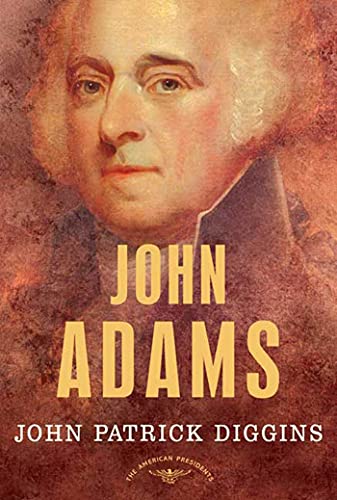

Book
Thomas Jefferson
by R. B. Bernstein
In this definitive short biography, Bernstein deftly synthesizes the massive scholarship on his subject into an insightful, evenhanded account illuminating Jefferson's central place in the American Enlightenment. Book jacket.

Book
"We'll Never be Young Again"
by Chuck Fries
This compelling account of our 35th president's last week is written with remarkable detail and intimacy through narration, personal stories and shared experience.

Book
Woodrow Wilson
by H. W. Brands
An acclaimed historian and Pulitzer Prize finalist offers a clear, comprehensive, and timely account of Wilson's unusual route to the White House, his campaign against corporate interests, and his decline in popularity and health following the rejection by Congress of his League of Nations.
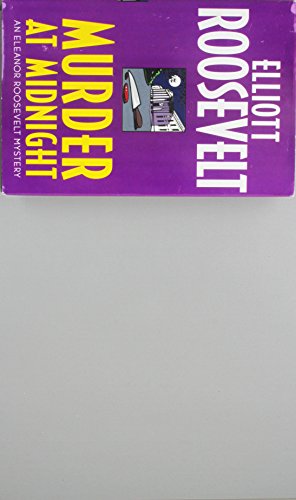
Book
Murder at Midnight
by Elliott Roosevelt
When Judge Horace Blackwell is found murdered in his White House suite, the primary suspect becomes black housekeeper Sara Carter, but Carter swears that she is innocent and the sleuthing First Lady sets out to find the real killer.

Book
Bill Clinton: Great expectations
by Nigel Hamilton
Bill Clinton, forty-second president of the United States, is the quintessential baby boomer: on the one hand blessed with a near-genius IQ, on the other, beset by character flaws that made his presidency a veritable soap opera of high ideals, distressing incompetence, model financial stewardship, and domestic misbehavior. In an era of cultural civil war, the Clinton administration fed the public an almost daily diet of scandal and misfortune. Who is Bill Clinton, though, and how did this baby-boom saga begin? Clinton's upbringing in Arkansas and his student years at Georgetown, Oxford, and Yale universities help us to see his life not only as a personal story but as the story of modern America. Behind the closed doors of the house on the hill above Park Avenue in Hot Springs, the struggle between Clinton's stepfather and mother became ultimately unbearable, causing Virginia to move out and divorce Roger Clinton. Dreading confrontation, Bill Clinton excelled in almost every field save athletics. But the fabled success of the scholarship boy would be marred by the decisions he came to make regarding Vietnam and military service--choices that haunt him to this day. We watch with a mixture of alarm, fascination, and awe as Bill Clinton does so much that is right--and so much that is wrong. He sets his cap for the star student at Yale, young Hillary Rodham, seducing her with his dreams of a better America and an aw-shucks grin. Wherever he goes, he charms and disarms--young and old, men and women...and more women. He becomes a law professor straight out of college; he contests a congressional election in his twenties--and almost wins it. He becomes attorney general of his stateand within two years is set to become the youngest-ever governor of Arkansas, at only thirty-two. Yet, always, there is a curse, a drive toward personal self-destruction--and with that the destruction of all those who are helping him on his legendary path. His affair with Gennifer Flowers strains his marriage and later nearly scuttles his bid for the presidency. He is thrown out of the governor's office after only one term and suffers a life-shaking crisis of confidence. Though with the stalwart help of a female chief of staff he regains his crown, it is clear that Bill Clinton's charismatic career is a ceaseless tightrope walk above the forces that threaten to pull him down--the most potent of them residing in his own being. Imbued with sympathy, deep intelligence, and the storyteller's art, this extraordinary biography helps us, at last, to understand the real Bill Clinton as he stumbles and withdraws from the 1988 presidential nomination race but enters it four years later, to make one of the most astonishing bids for the presidency in the twentieth century: the climax of this gripping political, social, and scandalous journey.

Book
1968
by Lewis L. Gould
Gould considers the surprising decision of Lyndon Johnson not to seek renomination for the presidency; the phenomena of Eugene McCarthy and Robert Kennedy; the campaigns of Nixon, Hubert Humphrey, and the third-party candidate George Wallace; the assassination of Martin Luther King and Robert Kennedy; the disastrous Democratic convention in Chicago; and the extraordinary events of what Eugene McCarthy later called the "Hard Year." it was, Mr. Gould observes, "a time of recurrent shocks, intense emotions, and passionate Judgments. During a troubled time, fallible men and women made decisions that changed the nation." Mr. Gould offers deft portraits of the major players' and a balanced analysis of the campaigns, their strategies, and their results. He describes how Nixon and the Republicans discovered the so-called wedge issues that would later serve Ronald Reagan and George Bush so well in their presidential campaigns.
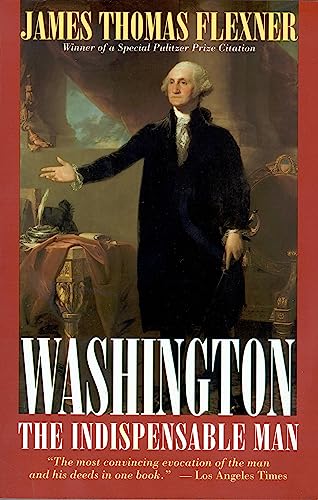


Book
Franklin Delano Roosevelt
by Roy Jenkins
In acute, stylish prose, Jenkins tackles all of the nuances and intricacies of FDRUs character--a masterly work by the "New York Times" bestselling author of "Churchill" and "Gladstone."
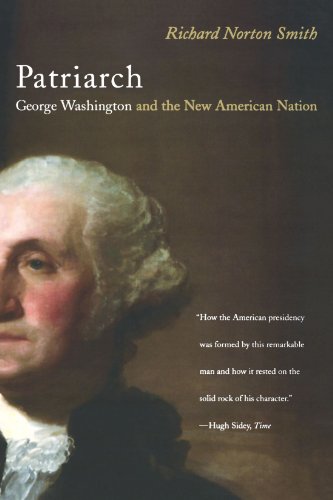
Book
Patriarch
by Richard Norton Smith
A dramatic portrait of George Washington's presidential years, Patriarch is a gripping story of politics and statecraft. Smith describes Washington's struggle to preside over the bitter feud between Jefferson and Hamilton--two brilliant members of his cabinet--while attempting to distinguish the first presidency.

Book
American Sphinx
by Joseph J. Ellis
NATIONAL BOOK AWARD WINNER Following Thomas Jefferson from the drafting of the Declaration of Independence to his retirement in Monticello, Joseph J. Ellis unravels the contradictions of the Jeffersonian character. He gives us the slaveholding libertarian who was capable of decrying mescegenation while maintaing an intimate relationship with his slave, Sally Hemmings; the enemy of government power who exercisdd it audaciously as president; the visionarty who remained curiously blind to the inconsistencies in his nature. American Sphinx is a marvel of scholarship, a delight to read, and an essential gloss on the Jeffersonian legacy.

Book
Fortunate Son
by James Hatfield
This new edition of the candid and controversial biography of George W. Bush offers an incisive look at Bush's questionable military history, disastrous business ventures, and the issues surrounding the 2000 presidential election. Illustrations.
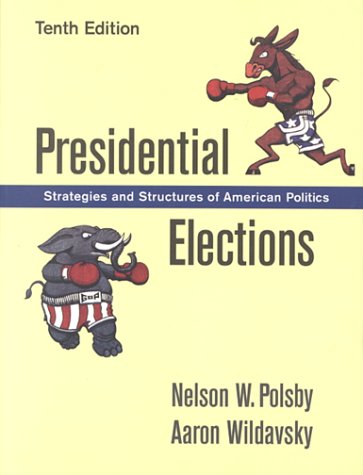
Book
Presidential Elections
by Nelson W. Polsby
This work, updated to reflect developments since 1996, addresses the essential challenges of the system of choosing a president in the US. It highlights the complexity and intensity of the selection process.

Book
Theodore Roosevelt
by Louis Auchincloss
Chronicles the life of Theodore Roosevelt, providing information on his military career, his early involvement in the politics of New York City, and his ascent to the national political stage.

Book
Thomas Jefferson
by Joyce Oldham Appleby
Few presidents embody the American spirit as fully as Thomas Jefferson. He was possessed of an unrivaled political imagination, and his vision accounts for the almost utopian zeal of his two administrations. Jefferson alone among his American peers anticipated the age of democracy and bent every effort toward hastening its peaceful, consensual arrival. He realized that the spirit of democracy required not only a political revolution, but also a social one. Jefferson, of upper-class birth and upbringing, spent much of his presidency laying out a path through the aristocratic prejudices and pretensions that stood in the way of democracy. The contradictions in his populism are striking and make Jefferson the most controversial of presidents: he spoke of inalienable human rights, but he taught his daughters that women were created for men's pleasure, and he believed that whites and blacks could never coexist peacefully in freedom. Even though his egalitarianism was limited to white men, it represented a sharp break with the outlook and policies of his predecessors. The ideological differences between Jefferson and Federalist presidents George Washington and John Adams led to the establishment of the two-party system that still dominates American politics today.

Book
James Madison
by Garry Wills
1. Madison, James 1751-1836 2. Presidents United States - Bopgra[ju 3. Imoted States - Politics and government - 1809 -1817.
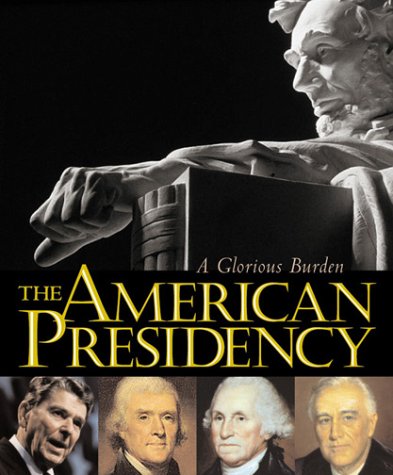
Book
The American Presidency
by Lonnie G. Bunch
Traces the evolution of the American presidency from George Washington to the present, drawing from the collections of the National Museum of American History to provide a look at the material culture associated with the presidency.
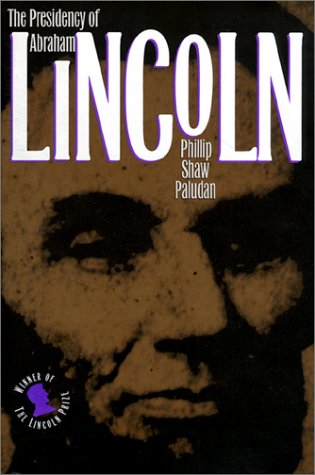
Book
The Presidency of Abraham Lincoln
by Phillip Shaw Paludan
In this study, Paludan offers us Lincoln in the round - a complex, even contradictory personality who found greatness without seeking it and who felt deeply troubled about what he perceived as his failings as a President and person.

Book
Patriot Sage
by Gary L. Gregg
This illustrated volume commemorates the life and legacy of America's Founding Father by bringing noteworthy scholars and authors together for a timely and topical consideration of Washington's enduring importance.

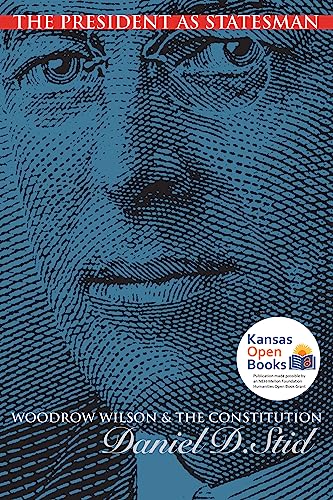
Book
The President as Statesman
by Daniel D. Stid
A political scientist who went on to become president, Woodrow Wilson envisioned a "responsible government" in which a strong leader and principled party would integrate the separate executive and legislative powers. His ideal, however, was constantly challenged by political reality. Daniel Stid explores the evolution of Wilson's views on this form of government and his endeavors as a statesman to establish it in the United States. The author looks over Professor and then President Wilson's shoulder as he grappled with the constitutional separation of powers, demonstrating the importance of this effort for American political thought and history. Although Wilson is generally viewed as an unstinting and effective opponent of the separation of powers, the author reveals an ambivalent statesman who accommodated the Founders' logic. This book challenges both the traditional and revisionist views of Woodrow Wilson by documenting the moderation of his statesmanship and the resilience of the separation of powers. In doing so, it sheds new light on American political development from Wilson's day to our own. Throughout the twentieth century, political scientists and public officials have called for constitutional changes and political reforms that were originally proposed by Wilson. By reexamining the dilemmas presented by Wilson's program, Stid invites a reconsideration of both the expectations we place on the presidency and the possibilities of leadership in the Founders' system. The President as Statesman contributes significantly to ongoing debates over Wilson's legacy and raises important questions about the nature of presidential leadership at a time when this issue is at the forefront of public consciousness.